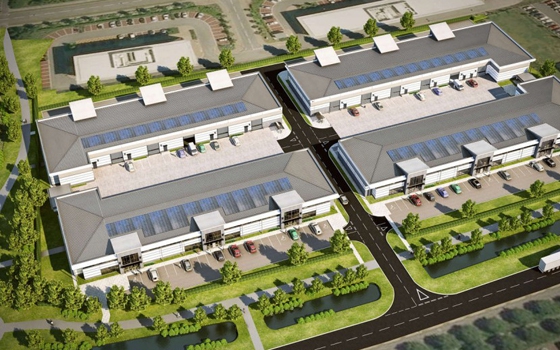The construction of industrial parks in Lebanon helps local manufacturers minimize the costs of production while enabling them to compete with neighboring countries, Industry Minister Hussein Hajj Hasan said. “Local producers are currently unable to compete with neighboring countries because an average of 20 percent of the total cost of their projects is allocated to the purchase of land not to forget the high cost of energy,” he said during a conference held at Grand Serail.
Hajj Hasan said Lebanon has previously signed free trade agreements with Arab countries and the European Union to facilitate the entry of local producers to new markets. But, he added, Lebanon could not really benefit from these agreements due to the high cost of production.
“We ended up importing from 600 producers without being able to export to 600 foreign consumers which resulted in a trade deficit of $17 billion in 2014,” he said.
Hajj Hasan’s remarks came during the launch of a prominent new project that aims to support the development of Industrial zones in Lebanon by the United Nations Industrial Development Organization and the Industry Ministry.
Funded by the Italian government, the project will assist the Lebanese government in developing industrial zones in Baalbek, Tourbol and Joun to help solve business infrastructure problems, overcome barriers to firm entry, attract investment, foster skilled manpower and facilitate the growth of local SMEs.
Bassel al-Khatib, industrial development officer at UNIDO, explained that the Italian government would grant 500,000 euros to UNIDO for preparing the master plans and feasibility studies phase for the three assigned areas.
“This phase will take around one year to achieve,” he said.
He added that the government of Italy made available a soft loan of 7 million euros through the Council for Development and Reconstruction.
“The project will cost more than 7 million euros for sure and there will be other investors including a possible contribution from the World Bank and others as well,” he said.
Khatib said the total cost of the project has not yet been estimated but it will be released in September.
He added that the success factors of the project lay in the solid partnership that will be created between the private and the public sectors for the construction of infrastructure and management of these areas. “The project will also guarantee the creation of jobs,” he said.
Likewise, Italian Ambassador to Lebanon Massimo Marotti said that this initiative aims to create new job opportunities in the industrial sector in order to support Lebanon in this critical economic situation. “It contributes as well to easing the burden that the country suffers due to the regional refugee crisis,” he said.
For his part, Prime Minister Tammam Salam praised the United Nations for the successful projects it is implementing in various fields across Lebanon.
Salam said the creation of industrial parks would contribute to supporting the industrial sector in a bid to ensure its survival after it has been neglected for years. “This sector was not given enough attention before but it is time to work for its benefit because it is one of the main pillars of the economy,” he said.
Fady Gemayel, head of the Association of Lebanese Industrialists, said that developing industrial parks in the appropriate zones would reinforce the economic presence of these areas by creating new job opportunities for its inhabitants, as well as building up technical academies that can meet with the manufacturer’s needs for skilled labor.
Philippe Scholtes, managing director of UNIDO’s Program Development and Technical Cooperation Division, said UNIDO and the Industry Ministry signed an agreement before the end of 2015 whereby the organization will help the ministry formulate an industrial strategy including the creation of industrial parks in addition to promoting the competitiveness of SMEs in the country and building inclusive industrial growth.
The Daily Star
1 February























































